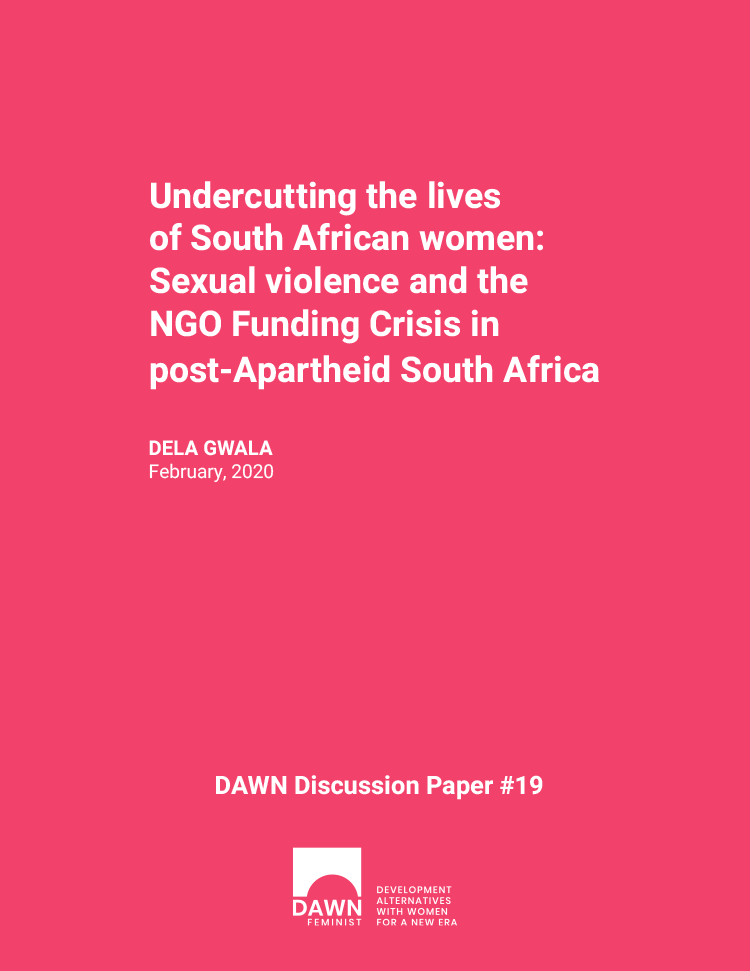Introduction
In 2018, in response to an increase in violent crime, particularly murder, former police minister Bheki Cele stated that South Africa is comparable to countries in the throes of military conflict despite being considered a bastion of peace (Green, 2018). Cele was not the first to compare South Africa to an unacknowledged battle zone. Many feminist activists have used this discourse to highlight the country’s high levels of sexual violence and other forms of gender-based violence. The ’war on women’s bodies’ has been a prevalent rhetorical tool deployed in movements, campaigns and literature for many years. The devastating impact of this widespread assault on women’s rights and the bodily autonomy of marginalised groups has been compounded by the systemic injustice perpetuated by the South African government and the international donor community. This article will contend that inadequate state funding and withdrawal of international funding constitutes an insidious form of structural violence in this environment of endemic violent crime. International geopolitics and the economic policy of South Africa has severely gutted service provision for survivors of sexual violence. This article will focus on one of the main service providers who have been adversely affected by this tenuous funding environment: Thuthuzela Care Centres (TCCs).

